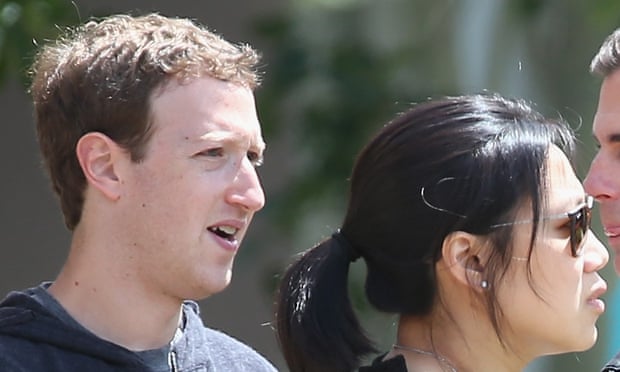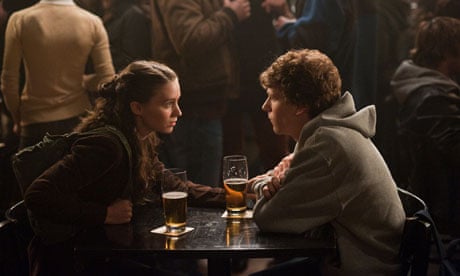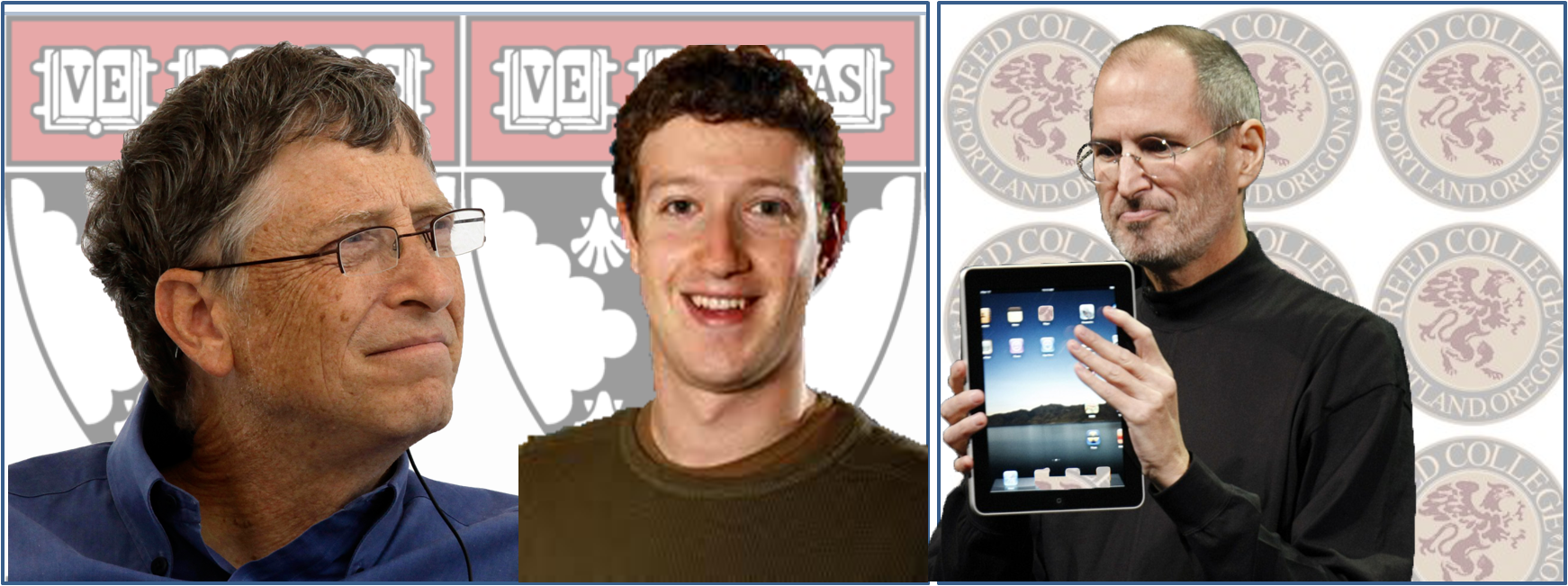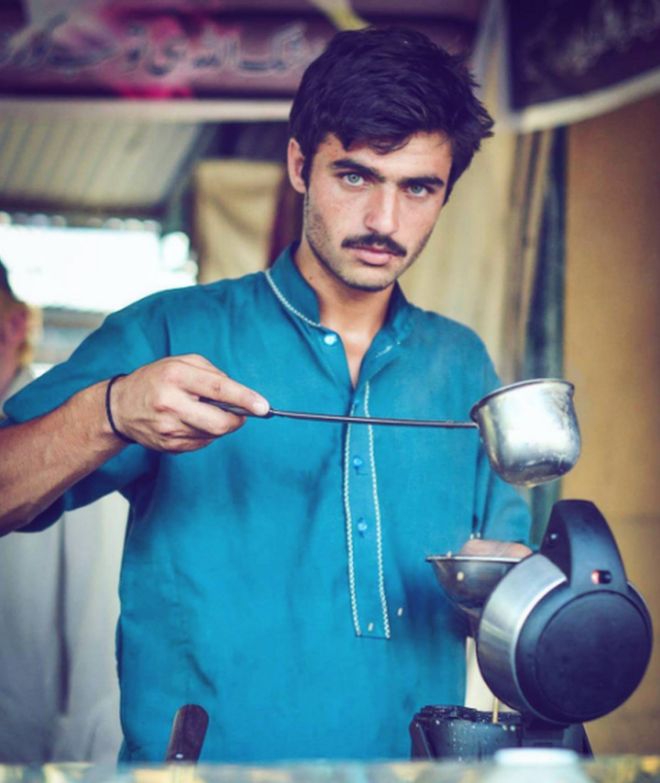




 Some Strange Reactions To Zuck's Good Move
Zuck's Giveaway
Some Strange Reactions To Zuck's Good Move
Zuck's Giveaway
I feel like the
Indian bureaucrats are being jackasses about this. Let me get this straight. Zuck's Free Basics means you can get
Facebook and about 100 other websites for free on your phone. Free! How is that bad? Some internet is better than no internet. And most of the folks want Facebook more than anything else anyways. And it is not like once you sign up for this, you can not then go and pay and surf all of the web. You can do an add on thing anytime you want or can afford. Besides, much of the Internet is crap anyways. I am so sure those 100 websites have been thoroughly vetted as the most useful. Maybe they offer some local news in local languages. Maybe they offer the latest crop prices. Maybe there is an even Sunny Leone --- Indian pride ---- website in that mix. Indians are holding Indians back! The white man (who was holding Indians back) left, but he left the Indians to hold Indians back. Damn you, white man.
Let me be clear. I do want all Indians to access the entire Internet, for free if possible, but even if they have to pay for it. I hope that time comes sooner than later, I am confident it will happen fast. But what's wrong with some free basics in the mean time?
When these people, these billion Indians, do finally get paid
Internet access, when the Indian god/bureaucrats let them be, guess what ----- most of them will use Facebook as their favorite app! Go figure.
Facebook is the new FM radio, and it does not squeak.
My theory is free flow of information challenges caste rigidities in
India. Free Basics also upends some local business models. Maybe there are
ISPs who feel threatened. Even if they have no plans or intent to serve that billion. Maybe billionaires are also supposed to pay bribes. Big bribes.
If the
Wikipedia is included in the free bundle, that alone is sufficient reason to believe this is a great idea. That might be a great way to take a high school to every Indian. I want that to happen. How many websites do you visit regularly, anyway? Most people visit way less than 100. For most people it's more like 10.
Mark is vastly underestimating the caste dynamics in India. You can not read up on race and understand caste, you can not read up on class, like in Britain, and understand caste. Caste is its own weird thing. Someone might have left India three decades ago, but caste still energizes them. It is religion to them.
The thing about caste was, it was said, should a Dalit (shudra) hear a word of the Veda/Purana/Upanishad even by mistake, pour molten glass into those ears! And Zuck is plotting to take the Wikipedia to every Dalit in India. There's gonna be problems.
When Zuck gave away all that money, it finally hit people as to how rich he actually is. And some people are not liking it. Good, old jealousy.
There is also one other way to look at this.
How about modifying it? How about a Free Basics Plus? It is still free. But now, other than the 100 sites, you will also get some data to browse whatever sites you might want to browse. To a point. And that amount keeps increasing. What about speeding up that drone thing, and covering every inch of India already? I can't think of a better use to Mark's 40 billion dollars. It would also give focus. Heck, for half that money, you could take drones everywhere, why only India, maybe just a quarter. I have long proposed drowning out ISIS with cat videos.
I am all about net neutrality. But I don't see a tech startup in India that is attempting to be either a Google or a Facebook killer, any more than when Google launched it was trying to be an
AOL killer. But I see a hundred tech startups in India some of whom might attain Alibaba size in 10 years. Guess what. Free Basics Plus gives you a billion potential users very fast. Otherwise it might take 10 years just to get to a billion users.
I believe Free Basics Plus is the solution. There has to be some give and take. India is a rambunctious democracy. Understanding American democracy does not prepare you for India. India is a whole different ballgame. Just go to one of the political rallies, and you will see. And they do those all the time. Go attend the
Kumbha Mela. It is the largest gathering of humanity. And there is zero chaos. Someone go do research. How? Indians will be heard. Free Basics will not fly. But a modification, however.
I don't care too much about Facebook, or maybe I do, it's free messaging and phone calls. Is there language support, by the way? There are a whole bunch of Indians who have relatives in the Gulf. Free Basics will connect them for free. They could be sharing photos. A picture is worth 10,000 words sometimes. I don't care too much about Facebook, but I salivate at the thought of every Indian having access to the Wikipedia. That is high school and community college. For free. Everywhere. The
Dalits could look up the Vedas. Molten glass in the ears is illegal, by the way. Let the Brahmins know.
Seriously, Zuck should speed up the drones so every tea shop in India is a Gigabit
WiFi hotspot. There would be no better way for him to honor his good friend Modi. I can't think of a better way to spend a few billion dollars.
Facebook is not a luxury, it is an essential communication tool. But depriving 1.2 billion Indians of Wikipedia is a criminal act.
Zuck has plans to connect people you have no plans to connect, for at least another 10 years. Why are you getting in the way?
Maybe you should get in there and provide those same people free phones. It can be branded. So people become more enamored of your brand. That is allowed.
I can't think of one country that will not salivate at the prospect of a billion high school graduates. Self taught at that. That is 10 trillion dollars waiting to be plucked. That's 50 Alibabas, if you only understand Alibaba.
Modi is not a career politician. He is a man on a mission. Zuck is not a boy billionaire, tech startup dude who owns an island or two. He is a man on a mission. He just needs some PR help.
No wonder the two like each other. No wonder the two are friends. But India is a democracy. Modi can't just order help from the top. And the democratic process is fine by me, more than fine. You just have to work it.
Say you offered Free Basics with everything except Facebook, with the option to download. I think more than 90% will download Facebook. So what's the fuss? And if there is, we should also ask Coca Cola get all its ads out of our face. Coke is not even good for you, Facebook is. It is like a 21st century telephone. Nobody ever hangs up.
Connecting everyone is how you go from a 60 trillion global economy to a 600 trillion global economy. Yes, I do think Free Basics could end up turning Facebook into a trillion dollar company in 10 years. Why is that a problem? If Facebook becoming a trillion dollar company means the world ends up a 120 trillion dollar economy, what seems to be the problem? For me it is not about oh wow look all those newly rich people. It is about, no more poor people. Internet is electricity today. Maybe it is food and air, it is to me. I can't imagine why everyone is not connected already. If there is only one gift I could give to 1.2 billion Indians, it would be internet access. They will give themselves the rest on their own. Connecting all Indians is giving the Indian democracy a steroid shot. Indians like to talk! Indians have opinions!
Or maybe bring down the number of sites in Free Basics to 10 from 100 and let the people use the extra free data any which way they want.
You connect a billion Indians and India will start growing at 15%. Fif-teen!
I am beginning to think more highly of Mark Zuckerberg than Elon Musk. India is Zuck's Mars. I like that. I have no particular desire to go to Mars. I can think of a thousand places I want to go on earth, before I think about Mars. Heck, I can think of a thousand places just in India, so make that 2,000.
If a person is not connected to the Internet, does he/she exist? If a tree falls in the forest. This is like voting rights, this is MLK. People should rise up. If you connect all Indians, the Naxalites wither away.
Free Basics will make massive ecommerce possible in India. Local ecommerce where transactions are taking place within a shanty town, a slum. You will end up with ecommerce slumdog millionaires, small Mark Zuckerbergs in the slums of Mumbai. Who hawk and sell online.
One app in Free Basics should be Dial 100, the Indian version of 911. You click on the app, which knows your location, and you pick what your emergency is, you get 10 readymade options to pick from. And the police knows immediately who you are, where you are, and what's going on. This would be the cheapest 911 service in the world. No need for a calling center. It could also be an Early Warning System of riots to a riots-free India. If you get a thousand SOS "calls" from one location almost immediately, you know something is brewing, and you go in heavy.
Another app should be a voting app. It has a biometric element. You should be able to vote on your phone. The app should work in concert with the Indian Election Commission. The app should make it possible for all Indians anywhere in the world to vote. The window is the day of voting and a week prior. You press your thumb, get in, and you vote. Free Basics. Democracy brought to you by Free Basics.
I would like to build a wallet and a 100% digital bank on Free Basics. Mark, invest, please.
If you vote, and bank, and pay and get paid, and call 911, and flip through the Wikipedia, what is access to Facebook and Messenger? Especially when you probably use Facebook more than anything else in the Free Basics offering.
Idea. What if the two Facebook apps disappear on their own if they are not among the top 50 apps on the phone for 90 days in a row? Then is that fair? Fairer? I expect them to stay in the top five.
Tell me of one act of progress that was not vociferously opposed. In fact, the more large and impactful the promised act of progress, greater the resistance. Lincoln went to war. But India being Gandhi's land of violence, we shall skip that part.
That 911, at the top of it should be a "My husband just hit me," in a local language, of course. "मेरे पति ने मेरे को थप्पड़ मारा ..." Half the people opposing Free Basics should be behind bars by the time we are done.
No sane person could argue against connectivity, and no sane person could argue against free. So we have already narrowed it down to what can and can not be offered. And since someone is paying for it, we are counting in the two Facebook apps.
Please put my blog on Free Basics. I’d not mind some traffic.
You don't hire me. You invest in my venture.
I understand power like Bill Gates and Mark Zuckerberg understand software. I prefer to call it group dynamics. Why is everybody running for president right now a New Yorker?
And I have been called Sean Parker before.
White Male Conspiracy To Drive Me Homeless
Free Basics Plus. 100 apps/websites custom made to consume much less data, and unless the two Facebook apps can stay among the top 50 by usage, they both drop out. If they stay below top 50 for 90 days in a row, they are no longer on the main screen, but fall to some place in the back from where they need to be actively resurrected.
Google is allowed a similar play, if it wants it. If Snapchat wants this play, they may also enter the scene.
There are max 100 apps/websites as part of the Basics, and then there is 500 MB data that users may use for whatever. You start at 500 MB. So if you get both the Facebook Free Basics, and the Google Free Basics, you are at 1 GB free. Add Snapchat, I mean Flipkart. And that is 1.5 GB, and so on. So Free Basics is like a new global standard. Any company may participate, but the rules are the same. Offer 100 apps/websites, not more than five of which can be your own, and they have to stay competitive, they have to stay in the top 50 by usage, or they fall off the charts. And you must provide a minimum of 500 MB per month for free. That users may use to go visit any site, use any app, download anything.
Soon you know, the barrier now is, are you the one also providing the free phone? You can, of course, brand it.
Facebook requires you to have an email address, and/or a phone number for you to create an account. How about a biometric option? You simply press your thumb. No email, no phone number needed. That is also how you log in.
Wikipedia in every hand is Dalit liberation. Long live Ambedakar!
India is slated to be Facebook's largest and hence primary market.
Without Free Basics, Indian tech startups are looking at a market of maybe 50 million people. With it, the market becomes a billion strong very, very fast. Do the math.
This is not a Net Neutrality debate, this is a Zero Net debate. As in, should people have access to the Net for free or not? Because free is the only way many can have it still. Wikipedia is both high school and community college. On your phone. There is a Ramanujan somewhere in there we need to discover by taking the Wikipedia to every Indian.
I believe I can get this done. Facebook should invest in my company like Yahoo invested in Alibaba. My ask is much less, like a thousand times less.


 The Facebook-Loving Farmers of Myanmar
The Facebook-Loving Farmers of Myanmar
A dispatch from an Internet revolution in progress.
Almost all of the farmers we spoke with were Facebook users. None had heard of Twitter. How they used Facebook was not dissimilar to how many of us in the West see and think of Twitter: as a source of news, a place where you can follow your interests. The majority, however, didn’t see the social platform as a place to be particularly social or to connect with and stay up to date on comings and goings within their villages. ........ this makes Negroponte happy. His one laptop-per-child dream was never fully realized but one smartphone-per-human—far more capable and sensible than a laptop, in many ways—has most certainly arrived ....
We ask about apps. One nephew says he uses Viber to text with friends and family who are outside of the village. But if he can meet in person, he goes to talk in person.
He says he uses his smartphone mainly for phone calls, which are still simpler and faster than texting. ........ Facebook! Yes yes! They use Facebook every day. ...... He shows us: A cow with five legs. He laughs. Amazing, no? Have you ever seen such a thing? ..... He gets most of his news from Facebook. The election looms and he loves the political updates. ...... He uses Facebook mostly at night when the internet is fastest, and cheapest. Night data clocks in at 5 Kyat/MB, afternoon data 6 Kyat/MB. ...... In 2014, the cost of a SIM card dropped from about $2,000 USD to $200 USD and then once again, to $1.50 USD. Mobile shops were swarmed. ...... a Jan Chipchase—the founder of Studio D—quote:
You’re only on track in field work if you feel a bit threatened.
........ Facebook is the most popular app, he says. Nine out of ten people who come into the shop want Facebook. Ten months ago SIM prices dropped, data prices dropped, interest in Facebook jumped. ....... Facebook is the Internet........ downloaded installs eat data. Everyone installs apps using Zapya, an app-sharing app. Makes a local network. Everyone nearby connects to it. Allows groups to send data—apps, videos, music—back and forth without using bandwidth ....... From no power to solar, from no banks to digital currencies, from no computers and no internet to capable smartphones with fast 3G connections. ........ there is no incumbent electric giant monopolizing rural areas to fight against solar, there is no incumbent bank which will lobby against bitcoin, there are no expectations about how a computer should work, how a digital book should feel. There is only hunger and curiosity. .......
A place like Myanmar is a wireless mulligan.
...... What are the most popular apps? She does not hesitate in response: Facebook. ........ Ten out of ten people ask for Facebook, she says. Everyone wants Facebook. Farmers know Facebook. All know to ask for it. But, how? How do they know to ask? Because everyone has it, she says. ....... But Facebook is most popular? Yes. Everyone wants? Everyone. Do people have email addresses? No. He makes the email addresses. Has a stack of pre-made Facebook accounts at the ready. He pre-installs the app and pre-loads friends. Facebook is for news, he says. .......
the shop itself is called Yahoo!
.......... I ask Patient Phone Shop Woman if she knows what Yahoo! is. Oh, yes, she says. Yahoo! is an exclamation of joy. ......... they had not joined Facebook ten years ago or five years ago or even two years ago ..... it is a malleable tool. And they have made it into what they want: Largely a news reader. A relatively bandwidth efficient way to read about topics that interest them (the weather, Buddhism, pretty girls in swimsuits). ....... The Farmers don’t use their real names (“I used my son’s name,” Farmer fourteen told us. Why? “Because it’s a good name!” he said smiling and patting his 1-year-old son on the head.) They don’t have email addresses and so often don’t know their logins. If they get logged out they have someone—often the village Facebook guru—make them a new account. ......... And yet I can’t help but wonder why Twitter fails to gain traction. It’s simpler. It consumes less bandwidth. It’s model is more minimal, the interface far less complicated. ....... Facebook has a compelling advantage over other news apps or even Twitter: The content of many posts and news items live inside Facebook itself. There are external links, but most of the article summaries and photos are self contained.
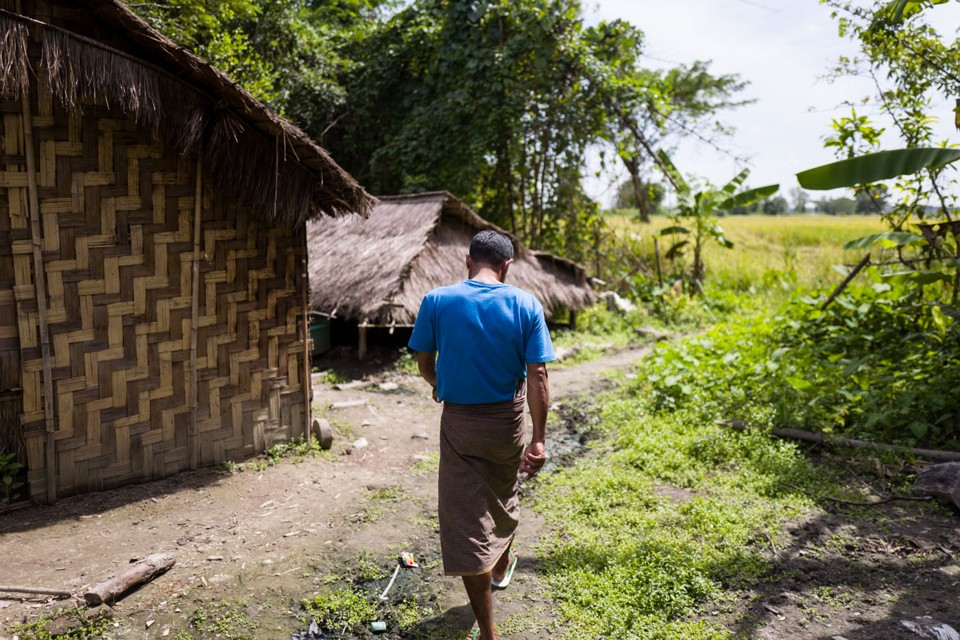
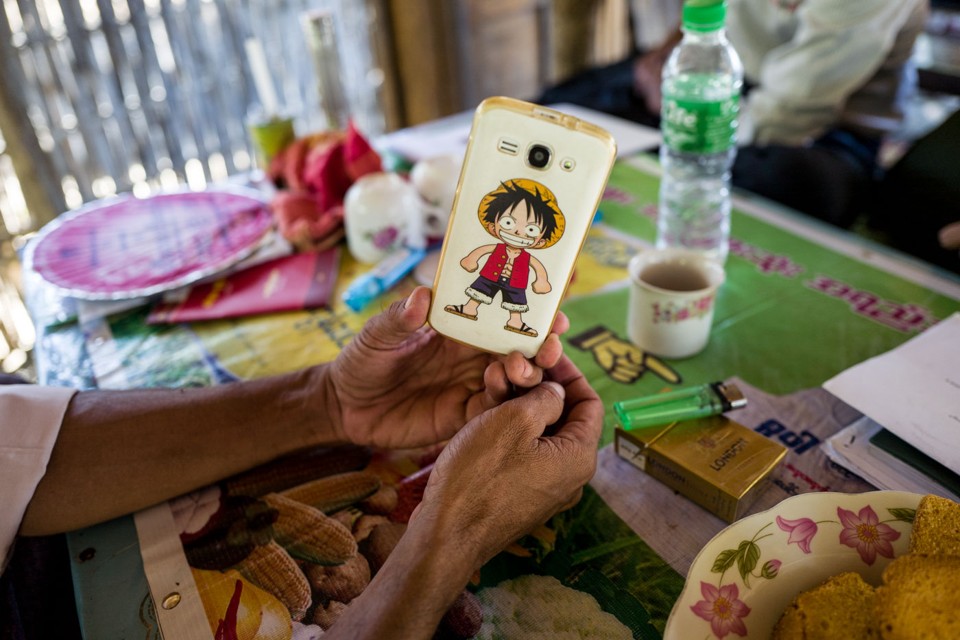
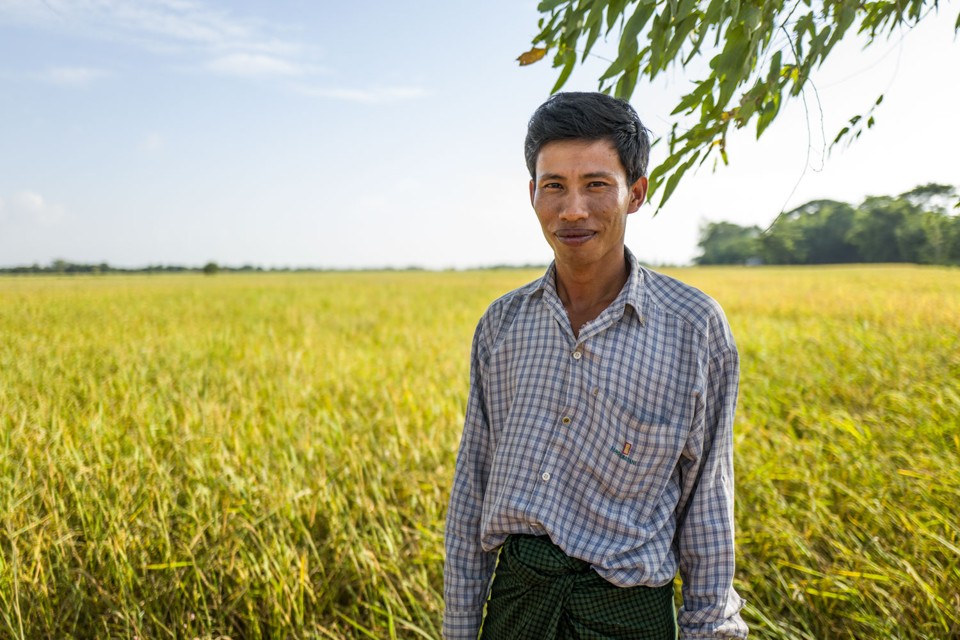
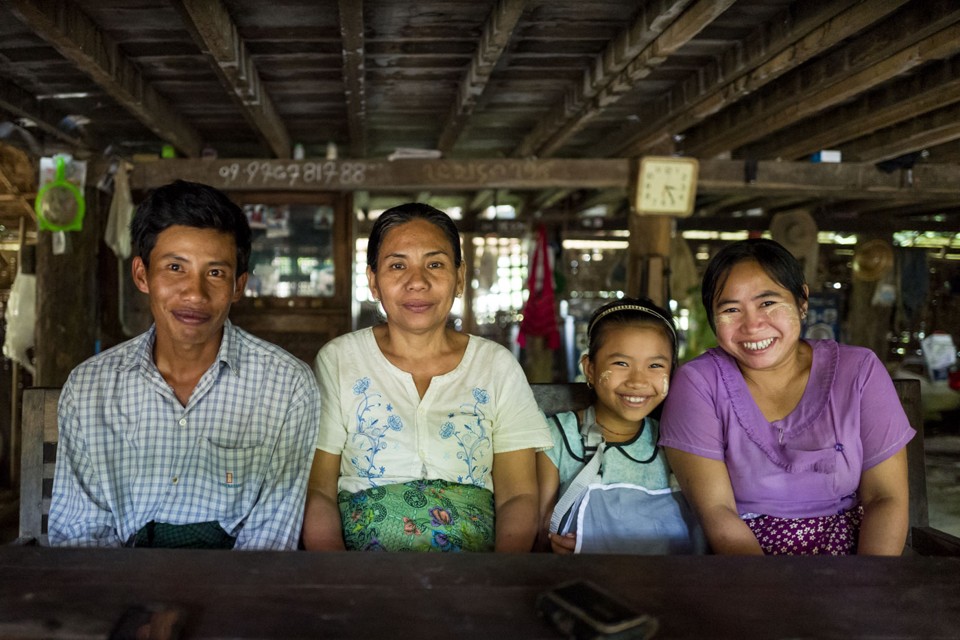
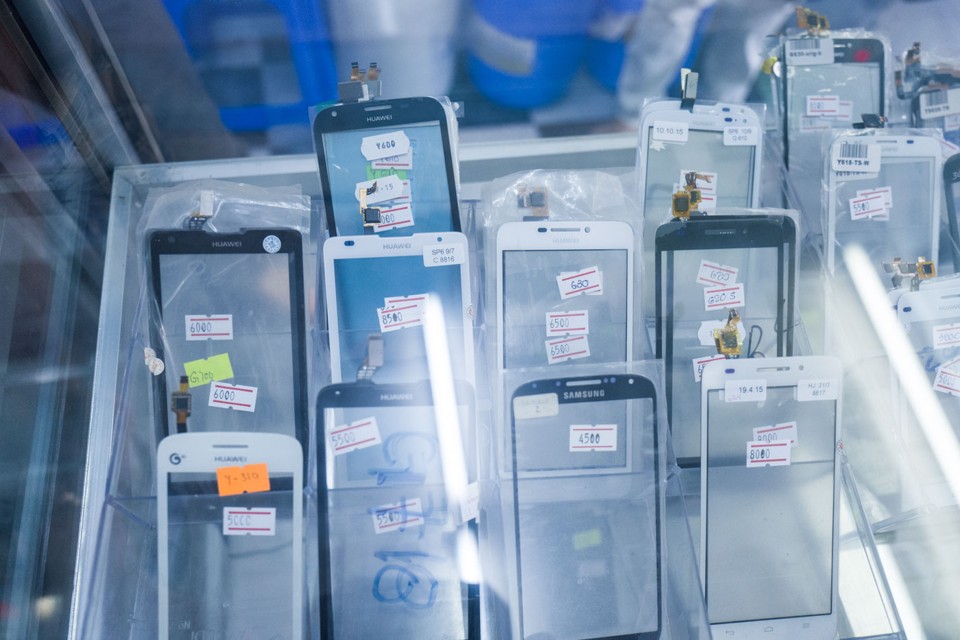
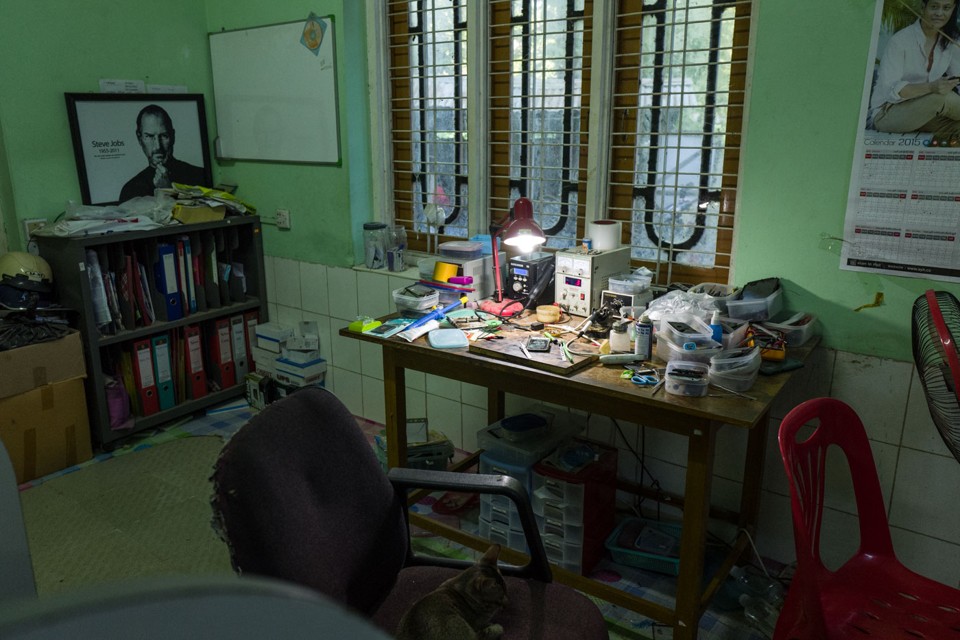
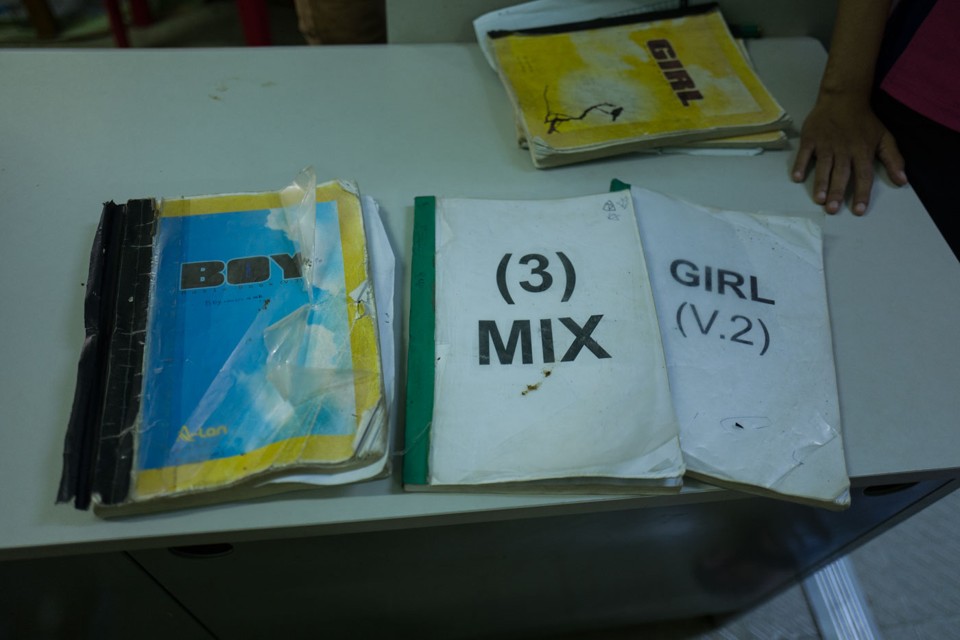 Free Basics protects net neutrality
Free Basics protects net neutrality
We have collections of free basic books. They’re called libraries. They don’t contain every book, but they still provide a world of good. ..... We have free basic healthcare. Public hospitals don’t offer every treatment, but they still save lives......We have free basic education. ......
everyone also deserves access to free basic internet services.
...... We know that for India to make progress, more than 1 billion people need to be connected to the internet. ..... Many people can’t afford to start using the internet ..... We launched Free Basics, a set of basic internet services for things like education, healthcare, jobs and communication that people can use without paying for data ...... half the people who use Free Basics to go online for the first time pay to access the full internet within 30 days. .....
Surprisingly, over the last year there’s been a big debate about this in India.
...... critics of the program continue to spread false claims – even if that means leaving behind a billion people. ...... Instead of recognizing the fact that Free Basics is opening up the whole internet, they continue to claim – falsely – that this will make the internet more like a walled garden. ..... Instead of welcoming Free Basics as an open platform that will partner with any telco, and allows any developer to offer services to people for free, they claim – falsely – that this will give people less choice. ...... Last year Ganesh started using Free Basics. He found weather information to prepare for monsoon season. He looked up commodity prices to get better deals. Now Ganesh is investing in new crops and livestock. ..... This isn’t about Facebook’s commercial interests – there aren’t even any ads in the version of Facebook in Free Basics.
It’s a battle for internet freedom
Why has Facebook chosen the current model for Free Basics, which gives users a selection of around a hundred sites (including a personal blog and a real estate company homepage), while rejecting the option of giving the poor free access to the open, plural and diverse web? ...... less experienced, low income groups prefer access to an open and unrestricted Internet, and while “some access is better than none”, the trade-off they are willing to make is how much they use the internet, not necessarily how much of the internet they get to use. That is, they would rather be given the choice of deciding what they want to access, with millions of websites and apps to choose from, for say, three days, over being given unlimited access to a limited selection. ...... Aircel has begun providing full internet access for free at 64 kbps download speed for the first three months. Schemes such as Gigato offer data for free for surfing some sites. The Mozilla Foundation runs two programmes for free and neutral Internet access: In Bangladesh, Grameenphone users get free data in exchange for watching an advertisement. In Africa, Orange users get 500 MB of free access on buying a $37 handset. ........ Net Neutrality is about the ISPs (and telecom operators) not giving a competitive advantage to any particular website or application. .......
While Facebook argues for Net Neutrality laws in the US, and supports permission-less innovation in that country, in India, it wants a permission-based Internet through its partnership for Free Basics. The perpetuation of Free Basics, would justify similar models such as Airtel Zero.
With Idea Cellular and Vodafone also supporting Airtel in its lobbying, we would end up with each telecom operator carving out its own private bubble from the Internet. Different people in India would get access to different information and knowledge, depending on the deals that their telecom operator strikes with online service providers. ........... FreeBasics and its peer telecom operator models are not open, plural or diverse, and can be harmful for India’s democracy. It is a form of vertical integration that is anti-competitive and is inimical for India’s fledgling startup ecosystem. It gives Reliance Communication and Facebook the power to pick winners and losers online. With telecom operators making money from websites and apps instead of from consumers, their focus will shift to meeting the needs of their business clients, over the needs of consumers. The incentive to invest in better, faster and cheaper access to the entire Internet will be replaced with one of providing better, faster and cheaper access to its websites and apps. Telecom operators would have a perverse financial incentive to get users to consume more of their partner services over the less lucrative open web: it could mean more expensive access to the open web, or poorer quality of service. ........ “If you dictate what the poor should get, you take away their right to choose what they think is best for them.” ....... It is sad to see Facebook spend millions of dollars lobbying for a stand which is against the innovation of the Open web, after benefiting from its openness. ........ India is expected to have 500 million Internet users by the end of 2017, and what kind of an Internet they get access to is important for our country. This is why the battle for Net Neutrality, with the last and current TRAI consultations included, is the battle for our Internet Freedom.
Net Neutrality
This is why we created Internet.org, our effort to connect the whole world. By partnering with mobile operators and governments in different countries, Internet.org offers free access in local languages to basic internet services in areas like jobs, health, education and messaging. Internet.org lowers the cost of accessing the internet and raises the awareness of the internet’s value. It helps include everyone in the world’s opportunities. ....... already more than 800 million people in 9 countries can now access free basic services through Internet.org. In India, we’ve already rolled out free basic services on the Reliance network to millions of people in Tamil Nadu, Maharashtra, Andhra Pradesh, Gujarat, Kerala and Telangana. ...... These two principles — universal connectivity and net neutrality — can and must coexist. .....
To give more people access to the internet, it is useful to offer some service for free. If someone can’t afford to pay for connectivity, it is always better to have some access than none at all.
...... Internet.org doesn’t block or throttle any other services or create fast lanes -- and it never will. We’re open for all mobile operators and we’re not stopping anyone from joining. We want as many internet providers to join so as many people as possible can be connected.
Why India's Net Neutrality Activists Hate Facebook
Mark Zuckerberg’s Internet.org philanthropy finds itself cast as the villain in India’s fight over Internet rules
critics have accused him of making
a poorly disguised land grab in India’s burgeoning Internet sector
. The growing backlash could threaten the very premise of Internet.org, his ambitious, two-year-old effort to connect the planet. ....... Indian authorities are circumspect because the Facebook initiative provides access to only a limited set of websites -- undermining the equal-access precepts of net neutrality. ...... Facebook’s Free Basics, which allows customers to access the social network and select services such as Messenger and Microsoft’s Bing without a data plan. ...... “Activists in other countries such as Brazil, Venezuela and Colombia are watching this debate and will seize the momentum created in India.” .... Facebook already attracts 1.55 billion people monthly, or about half of the Internet-connected global population. To keep growing, the world’s largest social network needs to get more people online. Hence the billions of dollars Facebook is spending on projects to deliver the Web to under-served areas via drones, satellites and lasers. And Internet.org, which now spans 37 nations. ....... Critics note that the Facebook service doesn’t offer Web favorites such as Google Inc.’s search. Facebook has said it would be open to adding more features from competitors, but critics are skeptical of giving the social-networking giant such influence on the Internet. ....... the company is creating a diluted version of the Web. That could stifle innovation by causing disadvantages for Indian startups building rival apps ..... While countries such as the Philippines have embraced Free Basics, India has been “the outlier and more challenging”
 Mark Zuckerberg can’t believe India isn’t grateful for Facebook’s free internet
Mark Zuckerberg can’t believe India isn’t grateful for Facebook’s free internet
All Facebook CEO Mark Zuckerberg wants to do is make the world a better place for his new daughter. While he’s technically on paternity leave, he couldn’t sit idly by as India attempts to halt Internet.org, Facebook’s initiative to provide free but limited internet to the developing world. ....... Zuckerberg paints India—where about a billion people are not connected to the internet—as backwards for even daring to question the benefits of Facebook’s charity-like endeavor. ......
“Who could possibly be against this?” he asks passive-aggressively. “Surprisingly, over the last year there’s been a big debate about this in India.”
...... Zuckerberg almost portrays net neutrality as a first-world problem that doesn’t apply to India because having some service is better than no service. ...... Net neutrality activists have long argued that Internet.org provides a “walled garden” experience because the sites that users can access for free are determined by Facebook and its telecom partners, essentially making them gatekeepers to the internet for poor people. ......
half of the people who come online for the first time using Internet.org decide to pay for full internet access within 30 days.
..... his arguments don’t directly address the concerns of net neutrality activists. For the people who choose not to upgrade to or can’t afford to pay for full internet access, Internet.org does indeed provide a walled garden of online content. Millions of people already have a skewed perception of the web, believing Facebook to be the internet ....... it currently has only one partner in India, Reliance. ...... Internet.org amount to economic discrimination—that this is essentially poor internet for poor people. ...... Facebook’s walled garden could very well determine the sites and services that will succeed in India. ...... Internet.org provides limited, slow, and subpar access, and these limitations make it all the more difficult for people to climb the economic ladder. As Naveen Patnaik, chief minister of the Indian state Odisha, has said: “If you dictate what the poor should get, you take away their rights to choose what they think is best for them.”
India regulator pillories Facebook over Free Basics lobbying
The Telecom Regulatory Authority of India (TRAI) said a poll prompting people to support the plan was "crudely majoritarian and orchestrated".............It had earlier asked the mobile network that partnered with Facebook to put its Free Basics offer on hold. ...... In a letter to the social media network, TRAI told Facebook that it had reduced a "meaningful consultative process" to help make informed and transparent decisions into a "crudely majoritarian and orchestrated opinion poll" which had "dangerous ramifications for policy making in India". ....... Equally of concern, said TRAI, was Facebook's "self-appointed spokesmanship" on behalf of those who had sent emails to TRAI using its platform. ...... the entry of Free Basics in India, which was temporarily put on hold after critics voiced concern that it would damage net neutrality in the country. ..... At least 50 professors of the Indian Institute of Technology and the Indian Institute of Science also supported the campaign, saying that the Free Basics plan was "a lethal combination which will lead to total lack of freedom on how Indians can use their own public utility, the Internet".
Facebook's Free Basics plan: India academics see 'deep flaws'
A group of leading Indian academics have criticised Facebook's controversial Free Basics internet plan, saying it has "deep flaws"....... At least 50 professors of the Indian Institute of Technology and the Indian Institute of Science said the plan would curb internet freedom in India. ...... critics of the Free Basics service say it runs contrary to net neutrality. .... Facebook assumes control of defining what a "basic" service is.......Facebook would be able to decrypt the contents of the "basic" apps on its servers. This flaw is not visible to the lay person as it's a technical detail, but it has deep and disturbing implications...... The term "free" in "free basics" is a marketing gimmick. If Facebook gets to decide what costs how much, in effect Indians will be surrendering their digital freedom, and freedom in the digital economy, to Facebook...... Content includes pages from
selected local news and weather forecast providers, the BBC, Wikipedia
and various health services..... In India, Reliance began offering the scheme in February and then extended it to all its subscribers in November
Inside Mark Zuckerberg's Controversial Crusade to Get Everyone Online
What you need to know from Wired and Buzzfeed's recent in-depth stories about the Facebook founder's ambitious plans to bring the Internet to the less-connected parts of the world.
Free global access to internet sounds like a great opportunity equalizer. ...... Free Basics offers users free access to member websites including Facebook -- no data charges, just search Wikipedia or post a status update online at your leisure. ..... Mark Zuckerberg, who has turned the promise of widespread internet access into a personal crusade. ...... The organization is working on drones to bring internet to places without the infrastructure to support connectivity, affordable smartphones, and a discounted WiFi program called Express Wi-Fi ...... traces the origins of Free Basics back to Facebook Zero, or o.Facebook, "a stripped-down, quick-loading, text-only version of Facebook" made available starting in 2010 on select mobile carriers. The service was free of data charges and bare-bones enough to work in locations where internet connections are weak. ...... Internet.org includes Samsung, Qualcomm, Ericsson, MediaTek, Nokia and Opera as partners after Facebook.
How Facebook’s Plan To Give The World Free Mobile Internet Went So Wrong
A history of Facebook’s highly controversial, completely audacious, and possibly best-intentioned program, Free Basics.
Today, Internet.org is behind a number of different connectivity initiatives, from a discounted Wi-Fi program, called Express Wi-Fi, to Aquila, a drone that can fly for months and beam down internet to those below. Yet its most prominent initiative is its zero-rated app, now called Free Basics, which contains the “entire set of free basic services,” Facebook’s product VP Daniels said. Both Facebook and Facebook Messenger are included. ..... After the app launched in Zambia, Facebook’s Internet.org team spent the rest of 2014 rolling it out in more countries — Kenya and Tanzania — and building support in India, Facebook’s second-largest market. ..... “We’re focused on it more because we think it’s something good for the world,” he said, “rather than something that is going to be really amazing for our profits.” ...... “My mission is to connect people,” Munish Seth, who heads Facebook’s connectivity efforts in India, told the New York Times in a story about Express Wi-Fi. “We hope they will connect to Facebook, but that’s not the primary mission,” he said. ....... “That’s how Facebook is positioning it every single day in its advertising campaigns across India — that it’s a philanthropic venture — whereas it’s not a nonprofit,” Nikhil Pahwa, co-founder of Savetheinternet.in, a group opposed to Internet.org, told BuzzFeed News in an interview. “It’s a business venture, through and through.” ....... At times, the efforts have bordered on brazen. Carolina Botero, CEO of the Karisma Foundation, a Colombian digital rights organization, said Internet.org has been positioned within Colombia as a public policy initiative, getting endorsed as such by the country’s top government officials. “You cannot present a marketing strategy as an important public policy in a country,” she said. “If it’s going to be a market strategy, then do it as a market strategy and we can deal with that. ...... It’s good for the entire internet ecosystem. Once people come online they discover and seek more services that they can use online. ....... In the short history of zero-rating, free data access has been given away largely via two methods: to make specific apps or websites available at no cost, or to give people a limited amount of data for free. Essentially, if the entire internet can’t be accessed at all times, the choice is to either make a limited set of services available permanently or make the whole thing available temporarily. Facebook, via its Internet.org app, chose the former strategy ........ Building these network effects in emerging markets would make Facebook a fact of life in those regions as well. ....... sweeping global rejections of “fast lane” initiatives, emboldened the activists, and they next turned their ire to programs like the Internet.org app, whose subsidized data costs for some sites were viewed as anticompetitive, much like the better connection speeds of the fast lanes. ......... In April 2015, net neutrality advocates took on and defeated commerce behemoth Flipkart’s plans to join a zero-rated program offered by telecommunications company Airtel. When the first wave of criticism hit, Flipkart CEO Sachin Bansal defended his company’s plans to join the program. But the outrage quickly became unbearable, and Flipkart withdrew ....... a handful of partners withdrew from Internet.org’s zero-rating initiatives, citing net neutrality concerns. These included the travel planning site Cleartrip, news station NDTV, and the Times Group (publisher of Times of India) ...... The app creates two separate levels of the internet, he said, voicing the main line of criticism against Internet.org from net neutrality advocates. One level is Facebook and its partners, offered free of data charges, and on the other is everyone else, at an inherent disadvantage ............. “If you don’t pay anything to access Facebook and its partners, they have a competitive advantage.” ....... “It is our belief that Facebook is improperly defining net neutrality in public statements and building a walled garden in which the world’s poorest people will only be able to access a limited set of insecure websites and services,” the advocates said. These groups ranged from the Digital Rights Foundation in Pakistan to i freedom Uganda. ....... Facebook now appears to be fighting for Free Basics’ life in India, a country it expects one-third of the next billion internet users to come from. The program is facing a permanent ban at the hands of the regulator TRAI ....... the company approached this initiative without fully understanding what it was getting itself into. Even Zuckerberg himself admitted being surprised by the backlash.
INSIDE FACEBOOK’S AMBITIOUS PLAN TO CONNECT THE WHOLE WORLD
More silence, during which it occurs to me the UN is like the opposite of Facebook. If it had motivational posters on the wall, they’d read:
Move slow and break nothing.
...... Zuckerberg, dressed in a dark suit and a tie, has come to make the case that the Internet should be considered, like health care or clean water, a basic human right. ...... Zuckerberg believes peer-to-peer communications will be responsible for redistributing global power ...... People could tap into government services, determine crop prices, get health care. A kid in India—Zuckerberg loves this hypothetical about a kid in India—could potentially go online and learn all of math. “It’s the underpinning for helping people get into the modern economy,” he says. “Ten years from now, we should not have to look back and accept there are people who don’t have access to that.” ....... nearly two-thirds of the global population—4.9 billion people—are not connected. ...... Most people, it turns out, do have Internet access available to them, even if it’s crappy. But they can’t afford to pay for it or don’t know why they’d want to. (If you’re feeding a family on $1,570 a year, as average Indian earners do, the web might not seem like a priority.) Roughly 10 to 15 percent of the unconnected live in hard-to-reach places and don’t have access at all. ....... Facebook has hammered out business deals with phone carriers in various countries to make more than 300 stripped-down web services (including Facebook) available for free. Meanwhile, through a Google X–like R&D group called the Connectivity Lab, Facebook is developing new methods to deliver the net, including lasers, drones, and new artificial intelligence–enhanced software. Once the tech is built, a lot of it will be open-sourced so that others can commercialize it. ........ To sell everyone from global leaders to fellow entrepreneurs on Internet.org, Zuckerberg has become an aspiring statesman. ....... Zuckerberg didn’t anticipate the extent of the backlash his idealistic undertaking would inspire. Skeptics see his mission as a play to colonize the digital universe. They question the hubris of an American boy billionaire who believes the world needs his help and posit that existing businesses and governments are better positioned to spread connectivity. ......... In the past year alone, he has “checked in” on his Facebook profile from Panama, India (twice), and Barcelona, and he has also made it to Indonesia and China. He delivered a speech in Mandarin at Tsinghua University in Beijing and hosted Indian prime minister Narendra Modi at Facebook headquarters. He is working his way through a reading list heavy on political and international-development titles, like Why Nations Fail: the Origins of Power, Prosperity, and Poverty. ....... He considers connecting people to be his life’s work, the legacy for which he hopes to one day be remembered, and this effort is at its core. ........... The Internet won’t expand on its own, he says; in fact, the rate of growth is slowing. Most companies prioritize connecting the people who have a shot at joining the emerging middle class or who at least have the cash to foot a tiny data plan. Those businesses can’t afford to take a flier on the hardest people to reach—the very poor—in the hope that decades into the future they will transform into a viable market. Zuckerberg can. ........ “There’s no way we can draw a plan about why we’re going to invest billions of dollars in getting mostly poor people online,” he tells me. “But at some level, we believe this is what we’re here to do, and we think it’s going to be good, and if we do it, some of that value will come back to us.” ...... on-the-ground deployment team is making its way from Kenyan refugee camps to inland villages to hack together new methods for getting people online. ...... His rule is that Facebook should work on any project that has the potential to increase connectivity by a factor of 10 or to bring down the price of that connectivity by a similar factor. ....... data that travels by lasers, sent to Earth from drones. ...... Facebook’s laser communications team is working to engineer lasers that transmit data 10 times faster than current versions ......
Zuckerberg asked the team for a list of experts. He started emailing them cold, including Hemmati, who then visited Zuckerberg in Menlo Park, California, and eventually signed on. “How often does one get the chance to be a part of a project that could make the world better for billions of people?” Hemmati says.
........ Hemmati’s new lab is in a nondescript office park in northern Los Angeles, just beneath the western regional headquarters of the Subway sandwich chain. Bolts and lenses litter the optical tables. A poster reads: “WARNING: SHARKS WITH FRICKIN’ LASER BEAMS ATTACHED TO THEIR HEADS.”........ Lasers can’t pass through clouds. As a backup, Facebook is developing software to extend existing mobile phone systems. Satellites could also do the job, though they are very expensive. (Facebook recently partnered with a French company to launch a satellite above sub-Saharan Africa.) ...... Zuckerberg meets regularly with the team for product reviews. It can lead to a productive tension. Zuckerberg, influenced by the quick nature of writing code, always wants to move faster, to release beta versions of various projects, and to talk about them publicly. ....... “We’re trying to get Mark to understand: This isn’t writing code on a laptop and copying it over to a server. There’s, like, physical stuff. There’s chips and radios and high-powered lasers and planes that could fall out of the sky.” .......
a low brick building marked only “#11,” though everyone knows it’s Facebook. “We tried to tell people it’s a warehouse,” engineering director Andy Cox says, “but we’ve had some 10,000 parcels delivered. Everything comes in, but nothing goes out.” …… Facebook’s passenger jet–sized unmanned aerial vehicle (aka drone) …….. a business development guy from Facebook phoned up and offered close to $20 million to buy his group. Nine days later, Cox started working for Zuckerberg. “I brought the oldest team yet to Facebook,” he tells me, describing the aerodynamicist, the structural specialist, and others he brought along. “There were two at 74, then 65, 57, and then there was me at 51!” …….. a sleek gray boomerang-shaped drone with the wingspan of a Boeing 737; it’s intended to glide slowly while staying aloft for several months at a time. The entire thing weighs less than 1,000 pounds—about one-hundredth the weight of a passenger plane. ………. Normally, he says, the development process from concept to flight takes seven years. By outsourcing some of their research to universities, Cox and his team hope to be able to get that down to a little more than a year. By the end of 2016, they aim to test a system that will work like this: A ground station will transmit a radio signal to a drone, which will send that signal to other drones via lasers. The fleet will beam those lasers down to transponders within about 30 miles of each craft. These will convert the signal into Wi-Fi or 4G networks. Facebook has not yet determined the data plan or pricing for this offering. …………. fly at 65,000 feet—higher than commercial planes and all but a few military aircraft …….. the air has just 9 percent of the density it has at sea level, so a craft designed for lower altitudes won’t stay aloft. Cox devised a hot-air balloon to lift it up into the sky. The balloon will then deflate, fall to the ground with a tracking device, and be collected and recycled. The team also worked to prevent flutter—a condition that makes the drone vibrate uncontrollably. ……………. Right now the biggest challenge Aquila faces is regulatory. Facebook has joined with Alphabet (formerly Google) to address bureaucratic obstacles. Its competitor has its own drone effort, Project Titan ……………. Google and Facebook will also need more spectrum for their projects to work. They have been lobbying the Federal Communications Commission to support an effort by the United Nations’ International Telecommunication Union to make specific radio spectrum available for drones. ………….. Ultimately, Facebook wants to launch 10,000 Aquilas and move them around the globe to create hot spots wherever they’re needed. As with most Connectivity Lab projects, the company aims to develop the technology and then release it to outsiders to commercialize it. Facebook has a model for this in its Open Compute Project, which launched over two years ago to build more efficient, economical data centers. Once Facebook made significant progress, it open-sourced its designs. ……………. a growing number of skeptics doubt Zuckerberg’s true intentions ………………… “These two principles—universal connectivity and net neutrality—can and must coexist” …………….. “It’s not an equal Internet if the majority of people can’t participate.” ………….. Are we a community that values people and improving people’s lives above all else? Or are we a community that puts the intellectual purity of technology above people’s needs? …………. In mid-May, digital rights groups from 31 countries signed an open letter to Zuckerberg, saying Internet.org “violates the principles of net neutrality, threatening freedom of expression, equality of opportunity, security, privacy, and innovation.” ……………… He hosted prime minister Narendra Modi in Menlo Park in September. In October he returned to India, where he held a town hall meeting at the Indian Institute of Technology in Delhi. There, he said a million people were using the app in India and that it had so far brought 15 million people online. …………… While an Egyptian regulator told Reuters the suspension of Free Basics was not related to security concerns, 3 million people had access to the service, according to Facebook, including 1 million who had never before accessed the Internet. ……………. Zuckerberg, who is on paternity leave, continues to engage his critics directly, defending Internet.org’s intentions ……………. there aren’t even any ads in the version of Facebook in Free Basics ……………. For the Internet to make a difference, people need to want to connect to it in the first place. …………. Zuckerberg told his friend that someone was going to build a social network, because it was too important not to exist. But he didn’t guess, back then, that he’d be the guy to do it. There were older people and bigger companies. So why, then, was Zuckerberg the one to build Facebook? “I think it’s because we cared. A lot of times, caring about something and believing in it trumps,” he says. “I couldn’t connect the dots going forward on Facebook from the beginning. To me, that’s a lot of the story of Internet.org too.”




 India's telecom regulator clashes with Facebook over Free Basics
India's telecom regulator clashes with Facebook over Free Basics
The social media company has been accused of turning a consultation with the Indian public into a "crudely majoritarian and orchestrated opinion poll."
The Telecom Regulatory Authority of India in a letter published on Tuesday accused the social media company of turning a public debate on Net neutrality "into a crudely majoritarian and orchestrated opinion poll." ..... Free Basics is a pet project of CEO Mark Zuckerberg that brings limited Internet use to those who would otherwise not be able to afford it. ...... TRAI said it had received 1.8 million responses from Facebook users, but the Silicon Valley firm claimed over 16 million emails from its users had been sent. "We urge TRAI to acknowledge and consider all of the 16 million comments sent by people in support of Free Basics," Facebook had written, adding that "all of them were sent to the correct email address in a timely fashion, but none were delivered as a result of the action taken to unsubscribe from delivery of Facebook emails." ........ TRAI acknowledged that emails from Facebook accounts "appeared" to be blocked from 17 December ....... Zuckerberg responded in a piece for the Times of India last month, comparing limited Internet access to libraries and hospitals. "We have collections of free basic books. They're called libraries. They don't contain every book, but they still provide a world of good," he wrote. "We have free basic healthcare. Public hospitals don't offer every treatment, but they still save lives." ...... With 132 million Facebook users, the company's user base in India is second only to the US, which has 193 million monthly active users.
Mark Zuckerberg Defends Facebook Free Basics As India Regulators Clamp Down
Free Basics service — a stripped-down version of the web that grants free access to a selection of websites in developing countries for individuals who can’t afford a mobile internet connection or dedicated broadband service ...... "Instead of recognizing the fact that Free Basics is opening up the whole internet, [critics] continue to claim — falsely — that this will make the internet more like a walled garden,” Zuckerberg wrote in the Times of India. “Instead of welcoming Free Basics as an open platform that will partner with any telco, and allows any developer to offer services to people for free, they claim — falsely — that this will give people less choice.” .......
in India the service provided access to a selection of about 30 websites such as Facebook, Facebook Messenger, Wikipedia and BBC News. Critics say sites not included in the service are at a disadvantage, and that Free Basics makes it harder for smaller sites to compete
. ....... there aren’t even any ads in the version of Facebook in Free Basics ...... Facebook has also stepped up its efforts to defend Free Basics in other ways, such as full-page ads in Indian newspapers
 Mark Zuckerberg makes renewed pitch to defend Facebook’s Free Basics
Mark Zuckerberg makes renewed pitch to defend Facebook’s Free Basics
Mark Zuckerberg appeared on a video to personally promote Free Basics and also wrote a personal appeal in one of the leading newspapers.
Facebook’s proposed Free Basics plan allows customers to avail of services like education, health care and employment listings through apps specially designed for this platform on their phones without a data plan but does not allow access to many services such as YouTube, Gmail, Google or Twitter. ........ Keen to tap the world’s largest offline population, Zuckerberg in an opinion piece in the daily compared Free Basics to a library—which houses only a selection of books—as well as to public healthcare and education. ...... Facebook acts as a gatekeeper for Free Basics, permitting some services, while rejecting others. ......
Zuckerberg, whose Facebook is spending billions of dollars on projects to deliver the Web to under-served areas via drones, satellites and lasers, said India’s progress depended on providing Web access to the one billion Indians without it.
.......... ‘Free Basics Protects Net Neutrality’ and that the service ‘is a bridge to the full Internet and digital equality’, he said, “Who could possibly be against this?” ..... This comes on top of full page advertisements that Facebook has run in newspapers to bolster support for Free Basics.
 Mark Zuckerberg’s Latest Bid to Get India on Board With Free Basics: Internet Is Like a Library
Mark Zuckerberg’s Latest Bid to Get India on Board With Free Basics: Internet Is Like a Library
India, home to the world’s largest offline population.
..... Zuckerberg said that India’s progress depended on providing Web access to the 1 billion Indians without it....... The social network’s founder wrote in his piece, titled “Free Basics Protects Net Neutrality,” that the service “is a bridge to the full Internet and digital equality.” ....... “Who could possibly be against this?” he added......... For the past few weeks, Facebook has blanketed India in advertisements designed to bolster support for Free Basics. Two-page ads in Indian newspapers have asked people to dial a 1-800 number to “support digital equality.” ...... On Facebook, Indian users are prompted to sign a letter supporting the service, which is then emailed to the Indian regulator. And, on video-sharing site YouTube, a banner ad urges people to watch a pitch for Free Basics....... The Telecom Regulatory Authority of India will decide whether Free Basics and similar services are legal in early January.
 Facebook in India
Facebook in India
Can’t give it away
Mark Zuckerberg’s internet-access programme hits a roadblock
According to Mr Zuckerberg, Free Basics acts as a gateway drug to the internet: half of those who first experience going online through the service start paying for full internet access within a month. Though the programme is promoted by Facebook, its costs are borne by the mobile-telecoms operators it works with—in the case of India, Reliance Communications, the country’s fourth-largest. ........ plenty of people are against Free Basics. They include everyone from India’s internet-and-mobile-industry body (of which Facebook is itself a member) to a ragtag group of volunteer activists who mustered almost 400,000 people to write to the Telecom Regulatory Authority of India (TRAI) as part of a public consultation on whether mobile operators should be allowed to charge different amounts for different forms of data. At stake is one of the world’s largest and fastest-growing internet markets outside China, which bars foreign digital services such as Facebook from entering.
Around a quarter of the Indian population—or 300m people—were online at the end of 2014, and the number is expected to double by 2020.
....... Critics of the programme say that Facebook’s generosity is cover for a landgrab. .....
Nandan Nilekani, an Indian tech luminary opposed to Free Basics, suggests that, instead, the government subsidise a monthly allowance of free mobile data for each user.
........ Facebook counters that the programme is open to all-comers that meet certain technical requirements, that user data are stored for only 90 days, and that there is no profit motive: the service does not include advertising. As for suppressing local competition, Facebook argues,
“there is no greater threat to local innovation than leaving people offline.”
..... The TRAI itself will deliver its verdict at the end of this month.


















































